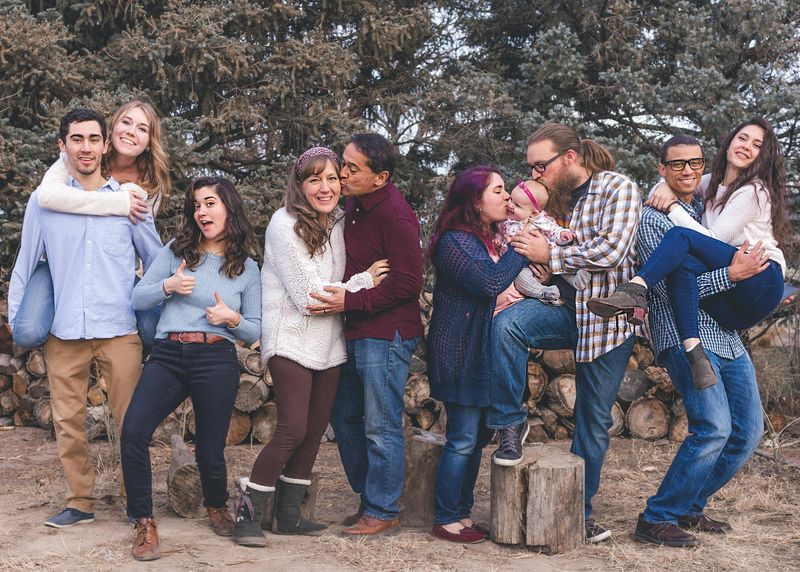Cutting ties with family is often one of the toughest decisions anyone can make. These relationships, whether healthy or harmful, have shaped our identities and emotional landscapes since birth. Before taking this significant step, it’s crucial to carefully weigh several important factors that might influence both your immediate wellbeing and long-term peace of mind.
1. Safety Comes First

Physical and emotional safety should never be compromised, full stop. If you’re experiencing abuse, threats, or manipulation that endangers your wellbeing, creating distance isn’t just warranted; it’s essential.
I’ve counselled many people who stayed in harmful family situations far longer than they should have simply because of blood ties. Remember that prioritising your safety isn’t selfish; it’s necessary self-preservation.
Trust your instincts here. If being around certain family members consistently makes you feel unsafe or triggers severe anxiety, your body is sending important signals worth heeding.
2. Explore Alternative Solutions

Have you tried setting boundaries before completely cutting ties? Sometimes limited contact with clear rules might be more practical than complete estrangement.
My own relationship with my high-strung aunt improved dramatically once I established that phone calls would be limited to thirty minutes and certain topics were off-limits. Temporary separation, family therapy, or communicating through a neutral third party could provide breathing room while keeping doors open.
Gradual approaches often feel less overwhelming and give everyone time to adjust to changing relationship dynamics.
3. Consider Your Support Network

Cutting family ties often means losing multiple connections simultaneously. Before making this decision, take stock of your support system outside these relationships.
When my friend Marcus ended contact with his parents, he hadn’t anticipated losing relationships with cousins, aunts and family friends who felt caught in the middle. Do you have friends, mentors, or other family members who’ll provide emotional support during difficult holidays or life milestones?
Building a chosen family takes time, so strengthening these connections before cutting ties can make the transition less isolating.
4. Financial Entanglements Matter

Shared bank accounts, co-signed loans, family businesses, or inheritance expectations create complicated webs that don’t easily unravel. Sorting these practical matters before ending contact prevents nasty surprises later.
I once worked with a woman who cut ties with her father only to discover he was the guarantor on her flat lease! Financial independence gives you freedom to make relationship decisions without economic pressure.
Consider consulting a financial advisor or solicitor if your situation involves significant assets, debts or legal obligations that might complicate your decision.
5. The Impact on Children

If you have children, their relationship with extended family requires thoughtful consideration. Grandparents, aunts, uncles and cousins can provide valuable support and different perspectives that enrich your children’s lives.
Little Jamie adored his weekend fishing trips with Grandpa, despite my ongoing conflicts with my father. Sometimes maintaining limited, supervised contact for children’s benefit might be appropriate, even when adult relationships are strained.
Of course, this depends entirely on safety concerns; never expose children to harmful individuals simply because of family ties.
6. Cultural and Religious Expectations

Family estrangement carries different weights across cultures and faith traditions. Some communities view family bonds as sacred obligations that shouldn’t be broken regardless of circumstances.
Growing up in my traditional South Asian family, I witnessed how cousin Priya’s decision to cut contact with her brother brought community judgment and isolation. Understanding how your decision might be perceived within your cultural context helps prepare for potential fallout.
You might need to develop responses to community questions or find supportive members within your culture who understand your situation.
7. Health and Medical History Access

Family estrangement can create practical barriers to important medical information. Genetic conditions, inherited health risks, and family medical history become harder to access when communication lines close.
My colleague Sarah discovered her family’s history of early-onset Alzheimer’s only after reconciling with her mother years after their estrangement. Before cutting ties, consider gathering essential health information and ensuring you have legal access to any needed medical records.
Some families with estrangement issues create neutral information-sharing arrangements specifically for health updates without reopening broader relationship wounds.
8. Your Own Emotional Readiness

Family estrangement, even when necessary, typically triggers grief, doubt, and complicated emotions that can surface unexpectedly. Are you prepared for birthday pangs, holiday blues, or random Tuesday afternoon waves of sadness?
The first Christmas after breaking ties with my brother hit me like a ton of bricks, despite knowing it was the right decision. Working with a therapist before, during and after estrangement can provide crucial emotional support during this major life transition.
Self-care practices and processing tools become especially important when navigating the emotional aftermath of family separation.
9. Possibility of Reconciliation

Consider whether your estrangement needs to be permanent or if you’re leaving room for future healing. Sometimes temporary separation creates space for reflection and growth on both sides.
My uncle and grandfather reconnected after fifteen years apart, building a different; but meaningful; relationship in their later years. If reconciliation might someday be possible, consider how your actions and words now might affect that potential future.
Avoiding burning bridges completely (like public accusations or involving mutual connections in conflicts) keeps more options open for your future self.
10. Long-Term Peace with Your Decision

Whatever choice you make needs to be one you can live with comfortably in the decades ahead. Some people find writing a letter (sent or unsent) explaining their reasons helps provide closure and future clarity about their decision.
My friend Elena keeps a journal documenting the patterns that led to her estrangement from her mother. During moments of doubt, reviewing these entries reaffirms her choice.
Making decisions from a centered place rather than during heightened emotions helps ensure you won’t be plagued by regret, regardless of which path you choose.